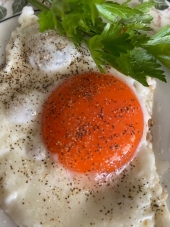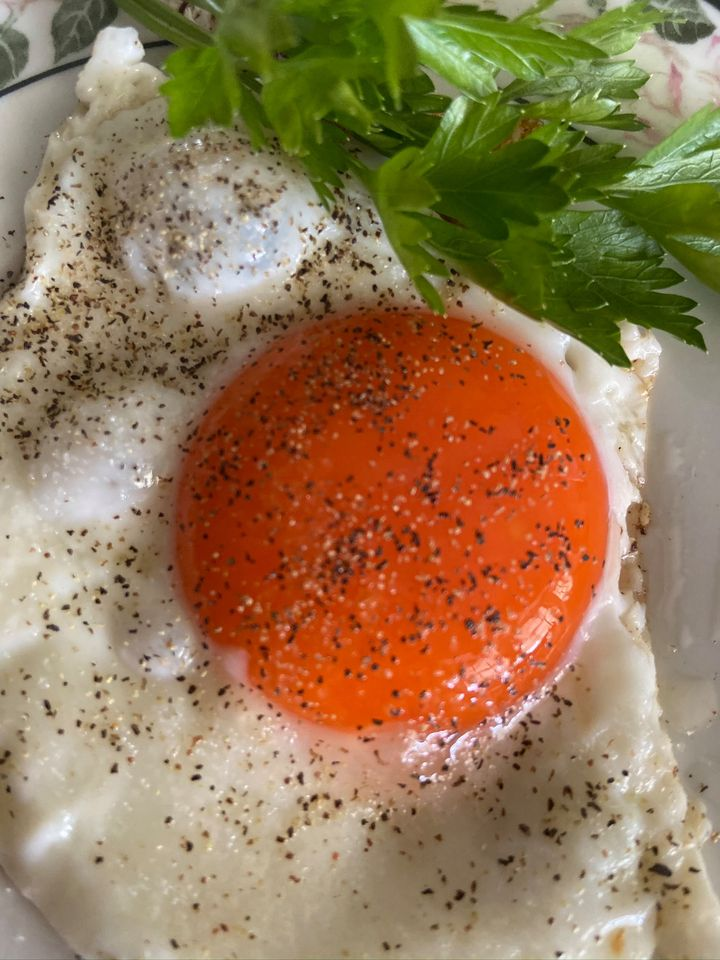 What is Astaxanthin Algae?
What is Astaxanthin Algae?
Astaxanthin is an antioxidant component from the algae
H. pluvialis. It typically provides the red pigmentation in salmon, crabs, and shrimp who feed on this algae in the wild. And it's widely regarded as
one of nature's most powerful anti-oxidants with well-documented benefits including:
Protection against oxidation 550 times greater than vitamin E and 6,000 times greater than vitamin CPreservation of cognitive functionImprovement of skin conditions and overall appearanceFighting lipid oxidation (giving eggs a longer shelf-life!)Combating chronic inflammation Greater exercise enduranceEnhanced fertilitySupporting retinal and vision health
With supplementation, your birds digest most of the algae and benefit greatly from having it in their feed. Dollar for dollar, astaxanthin transferred in the yolks is more efficient than pill supplementation, and 1 tablespoon of Algae produces more yolk astaxanthin than five sockeye salmon filets. It also comes in a more bioavailable (absorbable) form due to the fat and Vitamin E found in eggs. All this being said,
it doesn't change yolk taste. Rather it gives yolks a unique
rich, red hue:

The fats and Vitamin E in the egg yolks also maintain the stability of astaxanthin when it's cooked:
Is it safe for your birds?
Astaxanthin supplementation has been used in aquaculture without issues for several decades until poultry experimentation. A company in Malaysia, OnZen Eggs, has offered eggs from Astaxanthin-supplemented hens on conventional feed since 2018 without reporting poultry health problems. Furthermore, a study done on astaxanthin transfer from algae to hen shows the increase in nutrition from supplementation without reporting adverse effects:
https://lib.dr.iastate.edu/fshn_ag_pubs/13/. So we used this research to calculate the efficiency of feeding it to hens versus pill supplementation.
Anecdotally, we feed our hens an organic soy-free diet and monitor their health closely. Astaxanthin Algae supplementation seemed to give them more vibrant colors and improve their energy. We did not record egg production but speculate it increases as hen health improves. The only strange thing we noticed was redder stool, likely due to us adding more algae than necessary to get some data.
How do you serve it?
Organic Astaxanthin Algae doesn't come in meaningful servings at an affordable price. Due to storage requirements, suppliers typically only handle bulk orders. We've figured out a reasonable amount for your birds and split it into servings.
We've found 1TBSP best serves 6 hens per week. If you have more hens, you don't necessarily need to add more servings though. Each hen will eat less on average, but astaxanthin transfers better when consumed in smaller quantities. If you've got fewer hens, feel free to serve in teaspoons. Or let your hens consume a bit extra without harm.
The algae is heat, light, and oxygen sensitive. So we recommend adding it to feed at least once a week. We also recommend keeping your feed in the shade to help keep it stable. We package it into serving size baggies then vacuum seal them and refrigerate. When unsealed, store the baggies in an airtight container in the back of your fridge. Stored this way we do not expect significant degradation for several months.
FREE Samples
We currently have 5 samples (1 TBSP each) we'd like to give out to the community to get some feedback. All we ask is you cover the cost of shipping (which should be less than $4 when using USPS first class mail). To request a sample, please email me at
tylerpeairs@protonmail.com.
If you'd like to go ahead and put money down for a larger order, please preorder from our website:
https://astafeed.myshopify.com/pages/astafeed-supplement. We'll go ahead and start fulfilling if we can get 10 pre-orders by mid-February (to avoid holding on to money too long). Currently we can cover shipping for 8 servings at a price of $20. How much you use is completely discretionary though so feel free to spread this out if you like! We hope to lower prices once we've got consistent orders coming...











